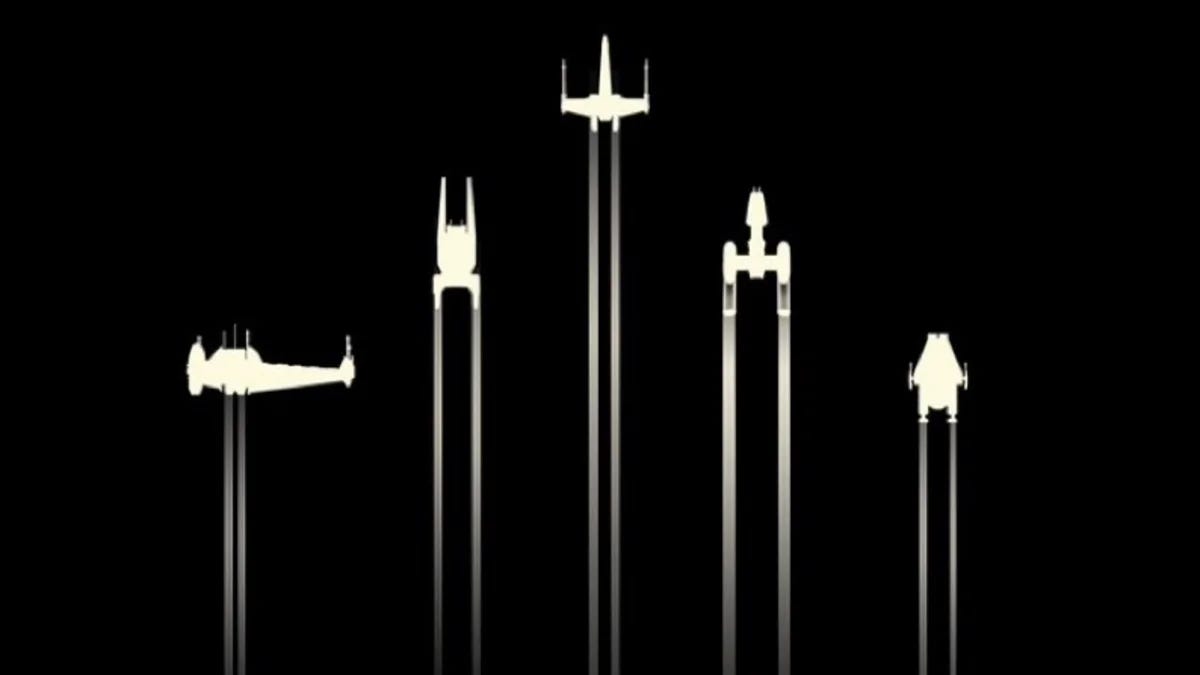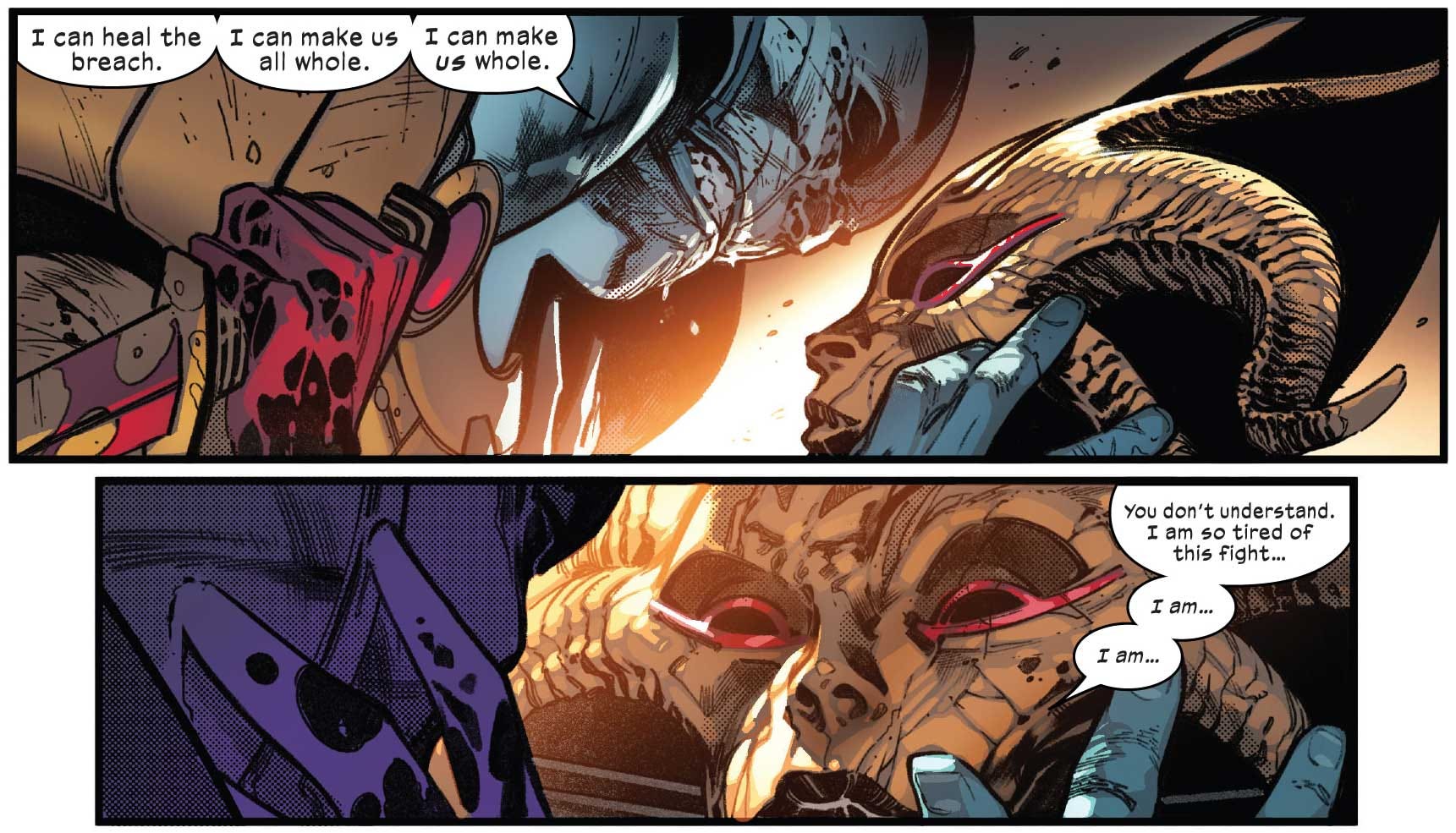Note 28: Book reports
Send your applications to join the Hera Syndulla Fan Club here.
Last week’s Note went longer than expected and I had some beefier book reports that I wanted to share, so this one will be focused on the last two week’s worth of books read. It’s going to be pure genre books - three from the Star Wars universe, last year’s big X-Men story X of Swords (pronounced “ten of swords”), and one weird fiction collection from some pals of mine focusing on our Feline Overlords.
So, in the words of Ice T, prepare for some deep nerd sh*t ahead.
Before we get to that, though, I wanted to share a story from earlier this week. As part of my quest to keep up with my reading obligations and my podcasts, I’ve developed a routine where I pop open the Kindle to read if I’m sitting anywhere longer than five minutes, and I switch over to podcasts when I’m walking or doing something else where keeping my nose to the page isn’t an option.
So, yesterday, I’m working my way through a short story collection on the train (review below), and I get to my arrival at Merchandise Mart. I put away the Kindle and unlock my phone to hit play on the podcast I had queued up. I’m what they call a Two-Star General in the Garmy, the paying audience of Ralph Garman (formerly of LA’s KROQ) who is making a living producing an excellent weekday morning radio show called The Ralph Report. It’s managed to attract an eclectic community over the years and I was catching up on the latest episode that had dropped earlier that morning.
So, I hit the play button on PocketCasts, and the audio sounds a bit muffled and off. I realize after a couple of seconds that it was playing through my phone speakers and I’m getting looks from other passengers on the train. Then I remember what the opening theme sounds like:
Over the last couple of years, I’ve listened to that groovy ‘70s theme literally hundreds of times, so that’s the audio cue that the show’s starting. However, if you’re not a member of The Garmy, it sounds a lot like the soundtrack to a film you’d go watch by yourself in a seedy theater in a pre-Guiliani Times Square.
Given that I’m already scrambling to unlock my phone to pause the music - because I think that behavior’s rude in general - and people are already looking in my direction, I’m looking all the guiltier before I get to the pause button after several seconds of frantic tapping and swiping. Fortunately, I was already at my stop and I skedaddle out of the train, super-pleased that we’re still in the mask phase of the pandemic. However, I suspect that a number of passengers had a new “guess what I saw on the train today” story for their friends and family. You expect behavior like that on the late-night Red Line, but never the family-friendly Brown Line.
Anyhoo, do you know who doesn’t have people on the train thinking he’s watching old pornos? Joe Biden.
These weeks in Biden
Before I jump in, I want to say that I’ve been pleased overall for the past couple of weeks, independent of the policy fights. It’s nice having fairly-predictable news cycles that aren’t held hostage to a septuagenarian’s rage Tweets. So, with that said, on to the…
The Good
For the most part, it seems like Joe Biden is installing Reasonable People in places to run the machinery of the US government. While I was glad to see a couple of his nominations shot down (Neera Tanden didn’t seem like an effective person for the role she was nominated for), on the whole I’m pleased to see the Senate confirming people again and I hope that the era of “Acting” stooges remains a relic of the dysfunctional Trump years. (I prefer Senate-confirmed stooges.)
One nominee that I’m especially pleased to see join the administration is Tim Wu, the fellow who coined the term “Net Neutrality”, and an outspoken critic of industry consolidation in the technology sphere:
His 2010 book The Master Switch argued that the open Internet as we knew it was barreling toward a closed-off, walled-garden future. In 2018 he published another book, The Curse of Bigness, in which he argued that US regulators' failure to enforce antitrust laws had led to "a new gilded age" and all its attendant problems.
While I loathe the moniker “Big Tech”, I agree with folks both on the Left and the Right that technology companies have strayed too far into Too Big to Fail territory, and have weaponized network effects to construct strong moats against competitors, especially in the social space. Unlike folks on the Right, I don’t think that the solution to this problem are new government agencies charged with making the Internet “fair”. And I disagree with folks on the Left, who would like to see the Internet fall under the jurisdiction of agencies like the FCC charged with removing harmful or disagreeable content online. I’m a big fan of letting markets do the work, and Wu’s appointment to the National Economic Council is a good sign that the Biden administration is leaning more towards more competitive market solutions that may see Facebook and Google replaced with superior alternatives, just as they replaced MySpace and Yahoo.
The Bad
I was very disappointed to hear that Biden won’t be imposing any meaningful consequences on Saudi prince Mohammed bin Salman for his role in the murder of journalist Jamal Khashoggi. I understand the realpolitik reasons that it’s difficult to act against the de-facto Saudi ruler, but I was hoping that we’d see something more meaningful than we got from the Trump administration.
One of the reasons that I’m not a fan of the petroleum economy is because oil’s the only reason that we have to play nice with repressive regimes like the Saudis. The sooner we can wean ourselves off the hydrocarbon teat, the better. They’re not our friends, and if part of the calculus is that MBS would be willing to hold Americans hostage to sway American thinking, then that’s a regime we shouldn’t be financially supporting, selling weapons to, or aiding them in their regional war of influence.
The Ugly
From everything that I’ve read on the new COVID bill, it’s an unfocused monster bill that spends a ton of money to get the American economy back to normal. While I’m in favor of returning to normalcy and there are things that I like in the bill (more resources for testing and vaccination), the current methodology of attempting to pass these monster bills isn’t sustainable and forfeits our ability to work together by pushing away the few reasonable folks in the GOP caucus by bundling common-sense popular items with dealbreakers for folks outside the progressive coalition.
I would have preferred to see many smaller bills instead of one large one, so that passage doesn’t become an all-or-nothing affair. If the bill is as popular with Americans as the press is reporting, what political risk do Democrats face by giving folks like Romney and Murkowski the ability to vote for things that they support, and forcing folks like Cruz and Hawley to cast votes against popular measures, just to continue to show their fealty to the QAnon wing of the GOP.
As I write this, the bill has passed on a 50-49 vote, so Democrats were successful in getting through elements that may not have passed on their own with Joe Manchin votes against, but this process will not work outside the budget reconciliation process. And I suspect that we’re about to discover this soon, as H.R. 1 (“For the People Act”) comes up for a vote, and Democrats decide whether they’ll nuke the filibuster for that one. (Something I strongly oppose.)
It would have been nice to see some earlier votes on common-interest legislation before moving to the trickier stuff (Infrastructure Week, anyone?), but the board is now set and we’ll see if Mega-Bills become the modus operandi of the new administration. I hope not, but I’m prepared to be disappointed.
Book reports
To transition from politics to this week’s book reports, I saw one story that bridged the gap between the two worlds. Before Dr. Seuss became a hot commodity on the Cancel Culture Circuit, we had Gina Carano being fired from Disney and her character - Alliance Shock Trooper Cara Dune of Alderaan - being retired from the Star Wars TV universe. While I don’t hold anything against Disney for canning her, I did really like the character she played and I was looking forward to seeing more adventures with her in Rangers of the New Republic.
While it looks like New Republic Warden Cara Dune will be quietly retired to the Outer Rim, a rumor surfaced that another character would be filling that gap, General Hera Syndulla.
General Hera Who? Glad you asked…
TIE Fighter by Jody Houser and Rogê Antônio (★★★★☆): When Disney purchased Lucasfilm some years ago, as part of opening up its options for ongoing films (which would become the last third of The Skywalker Saga), Disney declared the books and story canon that had been introduced since the original trilogy (the Expanded Universe) as no longer valid so that they wouldn’t be constrained by the likes of Admiral Thrawn and Daala, and the new Jedi Academy, yada yada, as they put together new films. This left a big hole in the Star Wars timeline, which Marvel began filling in shortly after the Disney purchase and included 2019’s TIE Fighter.
TIE Fighter follows the adventures of the Empire’s 204th Imperial Fighter Wing, known as Shadow Wing. The five-issue limited series follows the adventures of the Empire’s elite Rebel-hunting squadron between the rout of the Rebels at the Battle of Hoth through the death of the Emperor at the Battle of Endor. The story told is relatively small - focusing largely on a traitorous Imperial Admiral, and it’s more a character study of the individual Imperial pilots that make up Shadow Wing for their own personal reasons. It’s a solid prequel for Alexander Freed’s Alphabet Squadron trilogy of novels.
Shadow Fall by Alexander Freed (★★★★☆): This is the middle volume of Freed’s Alphabet Squadron trilogy, which follows a New Republic Intelligence officer who assembles a motley crew of former Rebel (now New Republic) pilots to counter and hunt down Shadow Wing after the Emperor’s posthumous Operation: Cinder, a series of planet-killing attacks carried out by various Imperial units, intended to make the galaxy ungovernable by either a successful Rebellion-based government or any Imperial vying to succeed as a new Emperor. We saw Cinder referenced in the latest season of The Mandalorian:
Mayfield (played by Bill Burr) doesn’t react well:
Operation: Cinder also plays a large role in the defection of Iden Versio in Star Wars: Battlefront II after her father scourges her home world:
Alphabet Squadron, the first volume of Freed’s trilogy, follows the defection of another Imperial, Yrica Quell when her commanding officer - Soran Keize - pushes her out of Shadow Wing after they kill the planet of Nacronis. Keize does this under the theory that the war is over and many more Imperial soldiers and pilots will die before peace can prevail. In that book, he also attempts to desert, but rejoins the Empire after New Republic Intelligence tracks him down to be tried for his war crimes. The rest of the book is about Quell being recruited into the eponymous Alphabet Squadron with a collection of other misfits (so named, because each pilot flies a different craft: A-Wing, B-Wing, U-Wing, X-Wing, and a Y-Wing). That book ends with Alphabet Squadron killing the leader of Shadow Wing, leaving that unit rudderless.
Shadow Fall (the book I’m actually reviewing) picks up with Alphabet Squadron enjoying some success as the New Republic consolidates its gains against hold-out Imperial warlords, and Keize begins reshaping Shadow Wing into more of a Rebel-like guerilla unit, as opposed to a traditional Imperial unit backed by overwhelming force. This volume really digs into the day-to-day grind of galactic war and the trauma it inflicts on those fighting it. It introduces the theme of the reckoning that warriors must face for their actions, as Quell struggles with her role in the genocide on Nacronis and her attempt at redemption.

Victory’s Price by Alexander Freed (★★★★☆): The final volume of the Alphabet Squadron trilogy ties up the ideas introduced in the prior two volumes: the trauma of war, one’s responsibility for their actions in the waging of war, and how peace can be achieved after such an intense conflict.
It’s in this book where the character of Shadow Wing leader Soran Keize really comes into focus. He starts down a dark path that seems incompatible with his attempts to leave the Empire two books back, and asks the hard question of how exactly the Emperor knew who to conscript to carry out Operation: Cinder, and whether a reconciliation between the two sides is possible when the atrocities committed by the losing side is eventually unearthed by the victors. The trilogy itself doesn’t focus so much on the repercussions for the top Imperial leaders who commanded others to carry out the murderous orders, but all the grunts and bureaucrats underneath them (Eichmann’s in space, if you will), who didn’t resist and enabled their leaders to murder billions under the guise of “just following orders”.
In a universe known for its mystical Force and Jedi space wizards, the Alphabet Squadron books dispense with that fluffy silliness and really look hard at the grit and grime of day-to-day war fighting. It tackles some really difficult questions that the films will never touch nor do justice.
In addition to seriously tackling tough issues introduced in other Star Wars media (books, games, film) the Alphabet Squadron trilogy also excels in really situating the story in a turbulent period of the New Republic as the new nation is just getting on its feet. Given the strong coordinating influence of the Lucasfilm Story Group (RIP), Alphabet Squadron is the narrative sibling of the flight-simulator Star Wars: Squadrons, which follows another rivalry between two New Republic and Imperial fighter wings (Vanguard Squadron and Titan Squadron). Events in one story affect the other, and the connective tissue between the two narratives is General Hera Syndulla, who is managing conflicts on both fronts. Syndulla, a Dave Filoni creation from Star Wars: Rebels, shows up in both stories as more than simple fan service, and will likely serve as the connective tissue between these stories and the upcoming Rangers of the New Republic (should the rumors pan out). Given the gravity and reverence that both Freed and Filoni have given the early days of the New Republic, we’re in for some solid Star Wars in the years ahead.
X of Swords by Jonathan Hickman and others (★★★★☆): Moving from one deep Disney mythos to another, I finally got around to reading the first major X-Men crossover since Hickman’s reinvention of Marvel’s mutants in House of X / Powers of X (HoX/PoX).
Told over 22 issues, this is a high-concept story that has the young mutant nation of Krakoa fighting for its survival against another nation of mutants from a different dimension, living on the other part of Krakoa (Arrako), which was split from its whole and its universe thousands of years ago by Apocalypse and his family, (!) who served as the original template for future iterations of the villainous Horsemen.
While HoX/PoX was a brilliant reinvention of the X-Men wing of the Marvel Universe, up until X of Swords, the individual titles have felt like they were filling space for this story. I’ve had mixed feelings on those stories, especially Excalibur, which double-downed on the mystical weirdness adjacent to the X-Men universe and served as the prequel for this storyline.
The story itself is a bit odd both in theme and in structure. Pronounced “Ten of Swords”, the ruler of one of Marvel’s many multiverses (don’t ask) challenges the nation of Krakoa (the X-Men) to assemble ten of its champions to face off against ten of Arrako’s champions (Apocalypse’s family). Should Krakoa win, the mutant homeland would be safe - but if they lose, Arrako would be free to claim Krakoa for their own, and likely conquer Earth after that. It’s pretty high-stakes stuff, and the story is split into two rough halves: the first half follows the champions from each side obtaining their respective blades for the battle, while the second half consists of the duels. While there’s plenty of swordplay, there are a number of interesting non-pokey challenges as well.

While this crossover can hardly be described as an X-Men story, it may end up becoming the canonical Apocalypse story. For folks new to these characters, Apocalypse is a villain introduced in the 1980s who embodied a Darwinist ideal where his villainy was focused on either making mutants stronger to take their place over humans or culling weak mutants that would be the first links in a chain to break. The character himself is several thousand years old, so how he acquired his Darwinist tendencies has always been a bit of a question.
In HoX/PoX, Apocalypse joins the X-Men on Krakoa as a member of the ruling Quiet Council, given that his dream of a strong mutant nation had been realized by Xavier and Magneto. He begins messing around with gates and magic, and it becomes clear that he’s attempting to rejoin his family, who were trapped in another dimension fighting endless hordes of demons. X of Swords (in Hickman style) establishes that Apocalypse’s cruelty and villainy in the pursuit of ever stronger mutants had a very concrete origin in preparing Earth’s mutants for what it would face in an imminent invasion from Arrako. There was a method to his madness and a concrete threat he was spending thousands of years to prepare for. While my mind is a bit tangled in how to reconcile this Apocalypse with the one in Age of Apocalypse and The Adventures of Cyclops and Phoenix, Hickman does a great job taking a long-time nemesis and giving him some new depth that’s been lacking since his creation (with maybe the exception of the Rise of Apocalypse ‘90s mini-series).
Given how far afield it is from from being a proper X-Men take, I’d be inclined to give this three stars, but it earns an extra star from me both for the brilliant Pepe Larraz art and a couple of key moments toward the end. While this wasn’t the home run for me that HoX/PoX was, I’ll be interested to see what Hickman pulls out of his bag of tricks next.
Weird Tails, edited by Rob Poyton (★★★★★): One of the things I enjoy most with my involvement in the online Lovecraft community is knowing artists and creators working in this space. Weird Tails is a short story and poetry collection with contributions from the Innsmouth Writing Circle, focused on the theme of weird fiction tales featuring felines. My pal Russell Smeaton has a good story on it (peripherially related to cats) that puts a new spin on the term earworm, and Rob Poyton crafts a solid homage to Alien and The Thing in his spacefaring tale. While some of these stories are set in the Lovecraft universe (especially the city of Ulthar), other entries follow the inspiration of other classic authors, such as the Robert E. Howard homage “The Shadow of Xiom-Thogg” by B. Harlan Crawford.
This is a nice collection and one I’ll certainly be gifting in the future.
In terms of the overall goal, I’m currently two books ahead of schedule (20 of 100).
Interesting reads
The Lost Year: What the Pandemic Cost Teenagers (ProPublica)
The Lord of the Rings technically takes place in March, which hits differently now (Polygon)
Lying to the ghost in the machine (Charles Stross)
Wait Just One American Moment (National Review)
What Happens When Investment Firms Acquire Trailer Parks (The New Yorker)
Next week, odds are good that we’ll get back to more serious topics (likely voting rights and H.R. 1), but until then, don’t get caught up in any interdimensional sword beefs, CMDRs.



